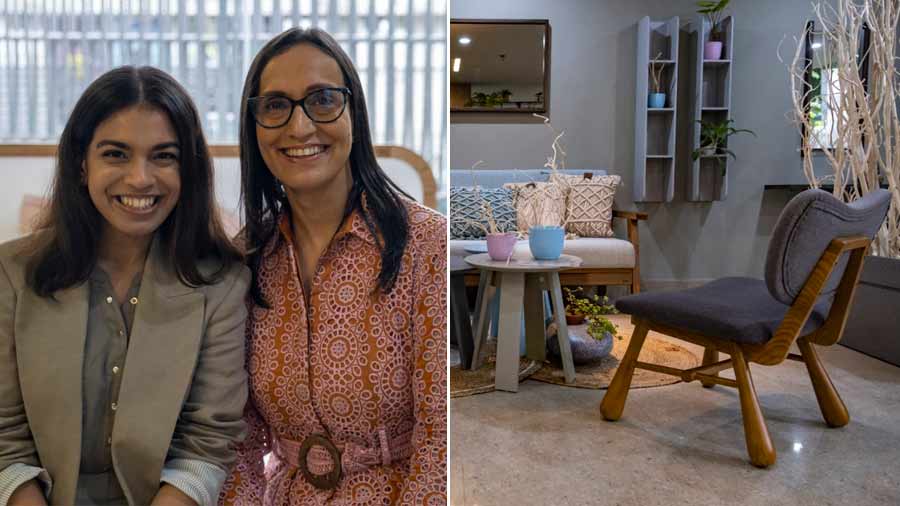We often indulge in lifestyles that are harmful to the planet — simply because we’re unaware. With the climate conditions that currently prevail — from soaring temperatures in the United Kingdom to flash floods in Pakistan — it is essential for every individual to measure their choices, and in turn, take steps towards a greener future. Fast fashion’s impact on the environment and the emissions of fast-food chains rarely strike a chord when we’re shopping for cute crop tops or biting down on double-decker burgers. In a similar manner, when purchasing furniture, do we consider the effect it has on our planet?
“The impact the furniture industry has on the environment is much, much more than we realise — wood is often sourced illegally, which leads to deforestation, harmful chemical toxins are used for mass production and even packaging processes have a huge carbon footprint. A lot of people are unaware of this and unknowingly use furniture that is not sustainable,” says Komal Bhargava, the 26-year-old at the helm of Kolkata’s newest furniture brand, Su-Kham, which is a sustainable furniture brand dealing in contemporary pieces that cater to the tastes of younger buyers.
My Kolkata attended the launch of the store and caught up with the entrepreneur on the need for sustainable furniture and what to keep in mind when shopping for wooden furnishings.
Edited excerpts from the conversation…
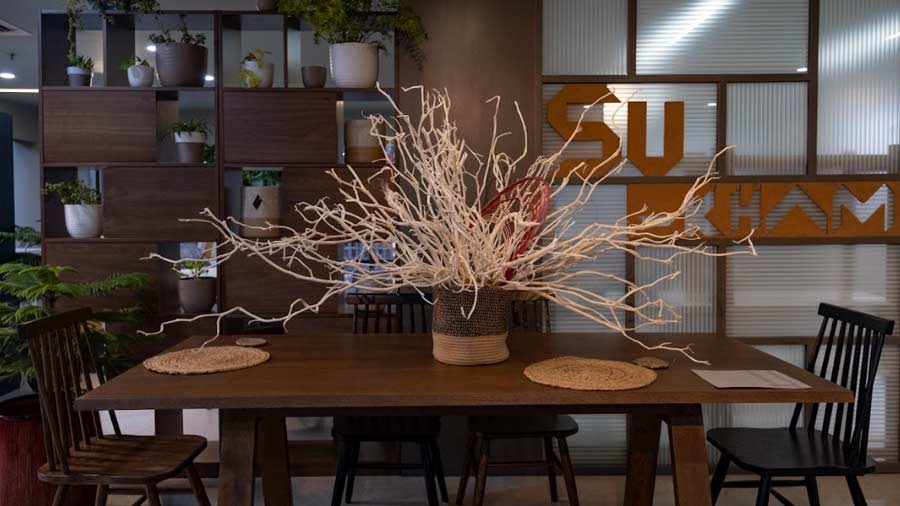
Located at 52, Syed Amir Ali Avenue (opposite Quest Mall), Su-Kham's furniture collection is Forest Stewardship Council (FSC) certified Ritagnik Bhattacharya
My Kolkata: First things first, break down the term ‘sustainable furniture’...
Komal Bhargava: Sustainable furniture is furniture that is sourced legally and uses only natural products. The Forest Stewardship Council (FSC) gives out certifications for wood that is legally sourced and meets eco-friendly standards. If a piece doesn’t have this certification, more often than not, it’s not sustainable. This certification essentially means that the furniture is made from trees that are specifically planted for the making of furniture and once used, more trees will be planted. So, deforestation doesn’t occur. This is a huge certification and is internationally recognised.
Many people shop online nowadays, even for furniture. How can one decipher what is sustainable and what is not while shopping online?
Look for the certification. Any company that is certified will display it for customers to see because it’s a major certification to have. If you’re buying regional gold, you get a certification with it and that helps you understand the quality. This certification works in the same way.
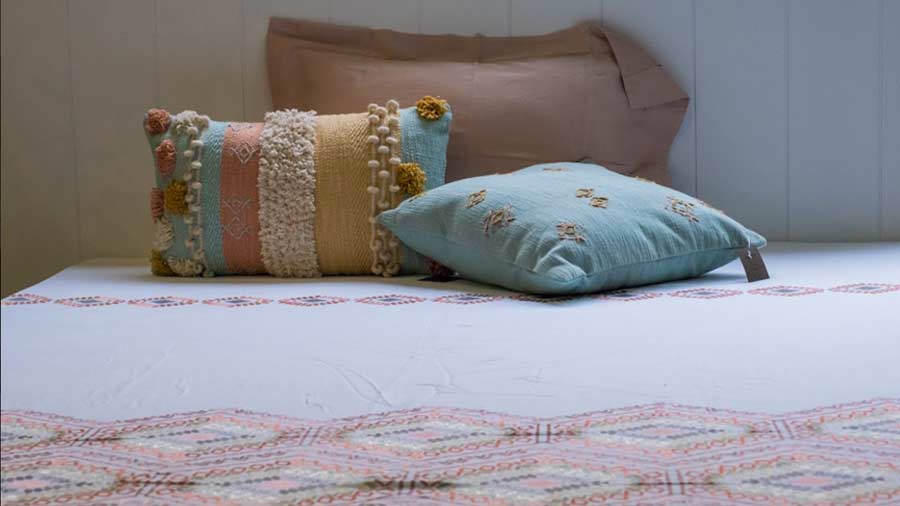
Indian products often fall within the sustainable bracket — especially macrame work Ritagnik Bhattacharya
What are a few red flags to look out for in product descriptions?
Any time you see the letters ‘MDF’ (medium-density fibreboard) or particle wood — run! These pieces are weak and will break. If you see it’s made of solid wood, oak wood or calibrated plywood — those are fine. But MDF and particle wood are huge red flags. Any furniture piece that uses toxic chemicals for finishes, polishes that are harmful, or even, wool in their products should be avoided, along with anything that uses animal products and animal by-products.
Kolkatans often have furniture that has existed in families for generations. What can we do to make these pieces more sustainable?
Any furniture piece that has lasted for so long is already sustainable. If you want your furniture to last longer, you just have to maintain it. If the wood is carved, then clean it regularly. One can even modernise old furniture and make it easier to maintain. Experiment with finishes and different types of polish. Using modern polishes or painting old furniture helps sustain it. Another way of sustaining old furniture is to mix and match it with contemporary pieces. If you keep your old family dining table and add a few modern chairs — it’ll look fabulous.
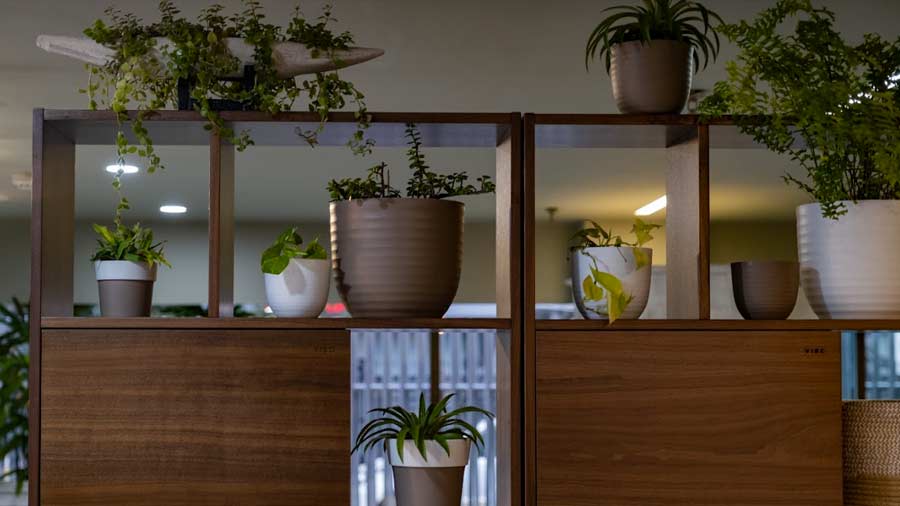
Ritagnik Bhattacharya
What is the lifespan of a sustainable piece?
Solid wooden furniture will last you anywhere between 70 and 80 years, on average. Furniture made of solid teak wood will last 300 years, because that wood is hardy and durable. Furniture in mango wood will last around 50 years and furniture made of oak wood will last around 100 years.
Is it necessary for furniture to be expensive for it to be sustainable?
I wouldn’t say that sustainable furniture is expensive — it is very often a one-time purchase and has a long shelf life. So, it pays for itself over the years. Solid wood, which is sustainable, can never match the rates of MDF and particle wood. Burma teak runs at the price of gold, whereas particle wood is not expensive at all, so automatically it sells at lower rates. But why not invest in furniture? We spend so much money on wedding outfits, laptops and iPhones — things we don’t use for more than five years. Wedding outfits we never wear more than once! So why not buy a good bed and sleep comfortably for the next 20 years?
Is handcrafted furniture a good way to go?
It’s risky, because you never know what wood it actually is. It’s often an unorganised market — there’s no concept of grades or certifications. So, unless you really trust the artisan, you’ll never know the quality of the wood or its source.
A myth about sustainable furniture you would like to bust?
It is not outrageously expensive!
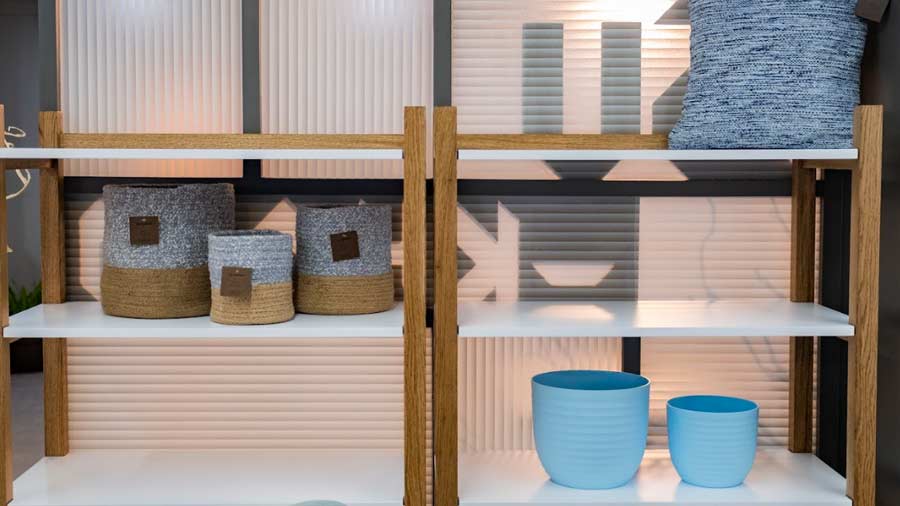
Su-Kham's flagship products are colourful center tables and pots made from recycled plastic waste Ritagnik Bhattacharya
